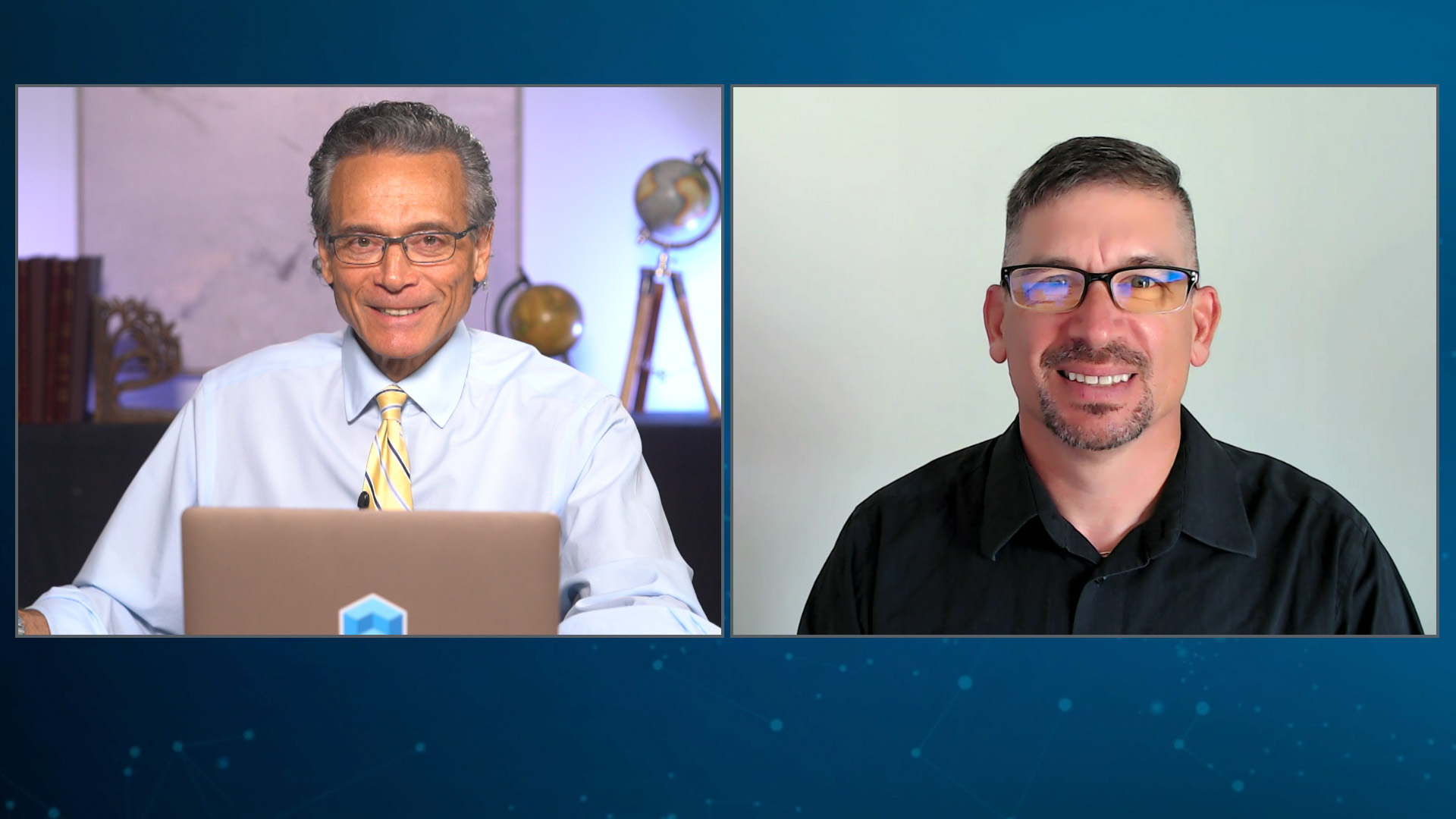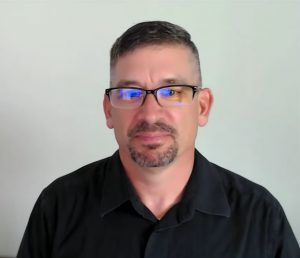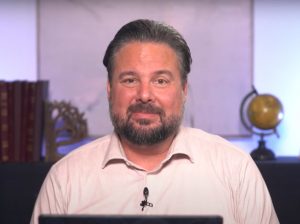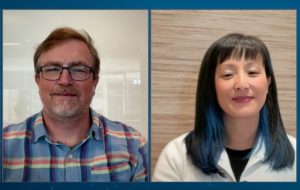 APPS
APPS
 APPS
APPS
 APPS
APPS
Application development is undergoing a seismic shift as enterprises prioritize speed, scale and intelligent orchestration across the entire software lifecycle.
No longer just about writing and shipping code, today’s application strategies are increasingly driven by AI-powered tooling, platform engineering and cloud-native design. As organizations push to modernize, they’re grappling with growing complexity, limited skill resources and relentless delivery expectations. The future of app dev hinges on seamless integration — from ideation to deployment — where smart automation and data-driven decisions aren’t optional luxuries but essential components of resilient, competitive infrastructure, according to Dave Vellante (pictured, left), chief analyst at theCUBE Research.

TheCUBE Research’s Dave Vellante talks about application development.
“Building modern applications, it’s not just about shipping code,” Vellante said. “It’s about delivering value continuously and securely, very importantly, across the entire life cycle.”
Vellante, along with other theCUBE Research analysts and experts from Heroku and Rafay Systems Inc., spoke with theCUBE’s Paul Nashawaty (right) at theCUBE Research’s AppDev Done Right Summit, during an exclusive broadcast on theCUBE, SiliconANGLE Media’s livestreaming studio. They discussed how application development is evolving through AI-driven tooling, platform engineering and cloud-native strategies to support faster, more secure and scalable software delivery across the full development lifecycle.
Here’s theCUBE’s complete event keynote analysis with Dave Vellante and Paul Nashawaty:
The AppDev Done Right Summit offered a sweeping look at the full software lifecycle, from foundational infrastructure (day zero) to build and release (day one) to operations and observability (day two), with DevSecOps woven throughout. Anchored in new survey data and practitioner insights, the sessions emphasized developer enablement, platform unification and the accelerating impact of AI tools on velocity and quality.

TheCUBE Research’s Paul Nashawaty discusses what needs to happen next with application modernization.
“First and foremost … when we think about the timing of application development and modernization, this couldn’t be a more critical time to get the information that organizations need to get going,” Nashawaty said “When we start thinking about the next generation and what’s going to happen next, we have to explore technology stacks like WebAssembly, Wasm or serverless technologies.”
Platform strategy emerged as a dominant theme during the event, reflecting growing investments in internal developer platforms aimed at reducing friction and increasing agility across teams. This evolution toward engineered efficiency is being fueled by developer-facing AI tools such as GitHub Copilot and intelligent observability systems, according to John Furrier, executive analyst at theCUBE Research.
“Empowering developers is the hottest thing right now,” he explained. “You’re seeing the hype on the AI side driving tons of action. It’s even more high velocity with the AI pressure and the data platforms being formed. One of the big themes that we are taking away from these events is the vibe coding is going to convert into engineering.”
Here’s theCUBE’s complete event analysis with John Furrier and Paul Nashawaty:
Early decisions in application development, from architecture to tooling, shape more than just delivery speed; they lay the groundwork for future agility and trust. Foundational choices such as GitOps and internal developer platforms are essential not just for scaling efficiently, but for unlocking creative innovation and long-term resilience, according to Savannah Peterson, principal analyst at theCUBE Research.
“If you’re not building these strong foundations, GitOps obviously being critical in your ability to scale and be agile about the tools that you’re using, you’re going to find yourself in a pretty prickly position here pretty fast,” she said.
Rob Strechay, principal analyst at theCUBE Research, took the conversation deeper into day one territory, where the stakes shift to delivery pipelines and release quality. He noted how organizations are striving to increase velocity without sacrificing trust, especially when deploying AI-driven or agentic systems.

TheCUBE Research’s Rob Strechay analyzes how organizations are striving to increase velocity without sacrificing trust.
“I think a lot of them are looking for different ways and strategies to really lean in and accelerate their time to market and time to value with these applications, and how to be able to do that in an ongoing statement,” Strechay said.
As the Summit turned its attention to day two operations, Bob Laliberte, principle analyst at theCUBE Research, underscored the importance of observability and proactive incident response. In today’s ephemeral, multicloud environments, siloed tools won’t cut it. Teams need unified, real-time insights to maintain application health and reduce downtime.
“The birth of these observability tools was really a response to how do we effectively manage these modern application environments and modern IT environments supporting them to ensure that organizations can have that availability, that performance that they need on a continual basis,” he said. “You don’t know what might be happening. It’s about collecting all of that data from a variety of different sources.”
Security must also be embedded across the software development lifecycle, not bolted on at the end. Jon Oltsik, principal analyst at theCUBE Research, warned against outdated security models that block progress, advocating instead for a fully integrated DevSecOps approach aligned to developer workflows.
“Security can’t be the department of no,” he said. “The key is to just adhere security to what the developers are doing and how they do it in an automated fashion, in an integrated fashion, so that we are not in the way but we are getting in early and securing every step of the dev cycle.”
Here’s theCUBE’s complete interview with Paul Nashawaty and Jon Oltsik:
As development teams face mounting complexity, the ability to streamline infrastructure and minimize friction is becoming a core requirement for successful application development. Heroku’s enduring appeal lies in its balance of simplicity and depth, helping modern teams focus on what matters most, shipping quality code quickly and consistently, said Betty Junod, chief marketing officer of Heroku from Salesforce, a cloud platform-as-a-service that enables developers to build, run and scale applications without managing the underlying infrastructure.

Heroku’s Betty Junod and Vish Abrams talk about using a balance of simplicity and depth in application development.
“This happened when containers and Kubernetes started; there was an explosion in new technology components that people had to think about,” she explained. “We’re having the same thing with AI. But, at the end of the day, there’s new tools for developers or builders because things like AI-enabled tools like Cursor and Windsurf, Lovable. All of those things are really expanding what it means to be a builder and kind of changing the process.”
This ease of use is grounded in Heroku’s historical ethos, abstracting away the underlying complexity so developers can concentrate on building features, not managing infrastructure. By promoting opinionated defaults and seamless pipelines, Heroku’s model reflects broader shifts in developer expectations.
“The thing that Heroku has been great at is just really removing the need to worry about all of those lower layers,” added Vish Abrams, chief architect of Heroku from Salesforce. “The more you can uplevel and abstract that out … the better the experience is for deployment.”
Those same challenges around complexity are echoed in Kubernetes environments. Haseeb Budhani, co-founder and chief executive officer of Rafay Systems, sees governance, standardization and automation as non-negotiables for platform success at scale. As companies grow and their stack becomes more distributed, the real challenge becomes managing environments consistently while empowering teams to move fast.
The company’s SaaS-based management layer enables platform and DevOps teams to orchestrate, monitor and secure Kubernetes clusters, providing a unified approach to lifecycle management across hybrid and multicloud environments, and streamlining operations through policy-driven automation and deep observability.
“We solved for self-service consumption,” Budhani said. “So, a developer from any one of your customers’ environment should be able to go to a portal, press a button, get compute. If you can’t do that, by the way, you’re not a cloud. You’re a data center, not a cloud.”
Here’s theCUBE’s complete interview with Betty Junod and Vish Abrams:
To watch more of theCUBE’s coverage of the AppDev Done Right Summit, here’s our complete event video playlist:
Support our mission to keep content open and free by engaging with theCUBE community. Join theCUBE’s Alumni Trust Network, where technology leaders connect, share intelligence and create opportunities.
Founded by tech visionaries John Furrier and Dave Vellante, SiliconANGLE Media has built a dynamic ecosystem of industry-leading digital media brands that reach 15+ million elite tech professionals. Our new proprietary theCUBE AI Video Cloud is breaking ground in audience interaction, leveraging theCUBEai.com neural network to help technology companies make data-driven decisions and stay at the forefront of industry conversations.